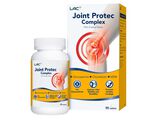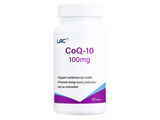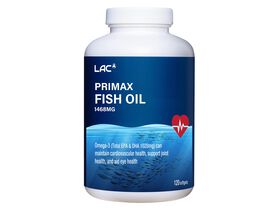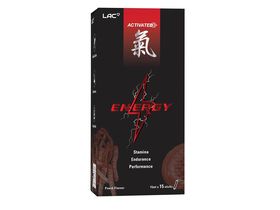Health Issues Men Over 40 Should Be Aware Of

Let's shed light on health concerns men over 40 should be mindful of. Stay informed and prioritize your well-being!
They say life begins at 40. It is when most people usually achieve what they want in their careers, finances, or relationships. At this point in our life, we are more stable and self-aware. On the other hand, it is also a time when we may experience various changes in our physical health and well-being that can impact our health.
Unfortunately, men tend to pay less attention to their health compared to women. They are also more likely to seek medical attention when it's too late, such as when they experience a heart attack or stroke.
The good news there is an increasing awareness of men's health. National Men's Health Week is celebrated on June 10 - 16 to encourage men to take charge of their health. This annual event aims to raise awareness about the health challenges faced by men and promote strategies for better physical and mental well-being.
Naturally, this is an excellent opportunity to talk about men's health, particularly those in their 40s. The more we can understand the importance of our health and how we can take care of ourselves, the better we can perform in other areas of our lives.
Read on to learn about common health issues men over 40 should be aware of and ways to improve your health.
Heart Issues
Heart disease continues to be one of the leading causes of death among men worldwide. [1]
Heart disease or cardiovascular disease refers to a group of conditions that affect the heart and blood vessels with a prevalence that tends to increase with age. Besides age, factors such as high blood pressure, high cholesterol levels, obesity, diabetes, and a sedentary lifestyle can increase the risk of heart disease.
Infamously, heart disease is also known as “The Silent Killer” because it can develop over time without showing any noticeable symptoms until it becomes too late. Hence it's incredibly important that we get regular health screenings, exercise regularly, maintain a healthy weight, quit smoking and alcohol, manage our stress better, and maintain a balanced diet.
Speaking of a healthy diet, some heart-healthy nutrients that you can incorporate more into your food intake are omega-3, magnesium, plant sterols, fibre, folic acid, and coenzyme 10 (coQ10). Although these nutrients are attainable through diet, consuming them in adequate amounts can be tricky hence supplements can come in handy.
Prostate Enlargement
The prostate is a small gland located just below the bladder and aids in semen production. The prostate tends to grow larger with age. As such, prostate issues such as benign prostatic hyperplasia (BPH) become more common as one gets older.
While the condition itself is not life-threatening, it can significantly affect the quality of life. Some signs and symptoms of BPH include difficulty in urinating, poor urine flow, and the inability to completely empty the bladder despite the increased frequency of urination.
Healthy habits such as regular exercise, watching your waistline, eating vegetables and fruits, and keeping an eye on dietary fat may help with BPH. Some of the best-studied, most commonly used supplements to relieve BPH include saw palmetto, beta-sitosterol, pumpkin seed, lycopene, and stinging nettle. [2]
Osteoarthritis
Osteoarthritis, a degenerative joint condition, often impacts men aged 40 and older. It develops as the protective cartilage around the bones' ends slowly wears away.
When the cartilage becomes thinner, bones rub against each other causing friction, leading to pain, stiffness, and loss of movement. While it can affect any joint, osteoarthritis typically targets the knees, hands, hips, and spine.
Besides age, other risk factors for osteoarthritis include being overweight or obese, which puts extra pressure on the weight-bearing joints, having a job that puts continued strain on the joints, poor posture, and joint injuries.
Achy, stiff joints can affect our ability to do our job or perform our favorite exercises. Here are steps we can take to keep joints strong and flexible:
Stress
With career, family, home, and other obligations to take care of, in addition to that taking care of our health and well-being, it's easy to get overwhelmed.
Importantly, men and women may react to stress differently. Compared to women, men are far less likely to seek help for mental health challenges, regardless of age, nationality, or ethnic or racial background.
Unfortunately, stress can actually make us sick. Being chronically stressed has also been linked to a higher risk of issues such as prostate cancer, erectile dysfunction, infertility, heart disease, digestive problems, and weakened immune systems. [3]
If you feel more angry, tired, irritable, or upset lately, stress may be the culprit. It's important to practice good self-care when dealing with stress. Regular exercise can be a great way to boost happy hormones to de-stress. Other coping strategies you may find helpful include meditation, mindfulness, and breathing exercises.
Hormonal Changes
Testosterone affects many aspects of men's health, from sexual function to disease risk. Testosterone levels in males peak at 19 years and naturally decline with age. On average, testosterone decreases about 1% a year after age 30. [4]
Many who have low testosterone levels experience no symptoms. Nevertheless, signs that might suggest low testosterone include reduced sexual desire, lower mood and energy, poor concentration, reduced muscle mass, and increased body fat.
The good news is that it is never too late to recharge your mojo. For many men, the symptoms are manageable by making healthier lifestyle choices such as a balanced diet, exercising regularly, getting enough sleep, and reducing stress. Exercising, particularly weight lifting has been shown to boost testosterone levels while a healthy balance of protein, fat, and carbs can help optimize our hormone levels.
On the other hand, certain herbs and supplements may be useful for supporting healthy testosterone levels such as Maca Root, Horny Goat Weed, Fenugreek, Tribulus, Tongkat Ali, Zinc, and L-Arginine. [5]
Make Your Health a Top Priority
As men hit their 40s, it's super important to focus on health and well-being. Regular check-ups, eating right, staying active, and managing stress can make a big difference. Knowing the risks of heart disease, keeping an eye on prostate health, dealing with achy joints, and handling hormonal changes can help keep you feeling great.
It's never too late to start. By staying proactive and making healthy choices, you can keep living a vibrant and active life. Take care of yourself now for a healthier future. Stay informed, stay active, and most of all, stay healthy!
[1] https://www.who.int/news-room/fact-sheets/detail/the-top-10-causes-of-death
[2] https://www.healthline.com/nutrition/prostate-health-and-supplements#common-ingredients
[3] https://www.healthline.com/health/stress-symptoms-in-men#stress-reduction
[4] https://www.mayoclinic.org/healthy-lifestyle/mens-health/in-depth/male-menopause/art-20048056
[5] https://www.healthline.com/health/herbs-vitamins-supplements-testosterone-levels-balance#_noHeaderPrefixedContent











